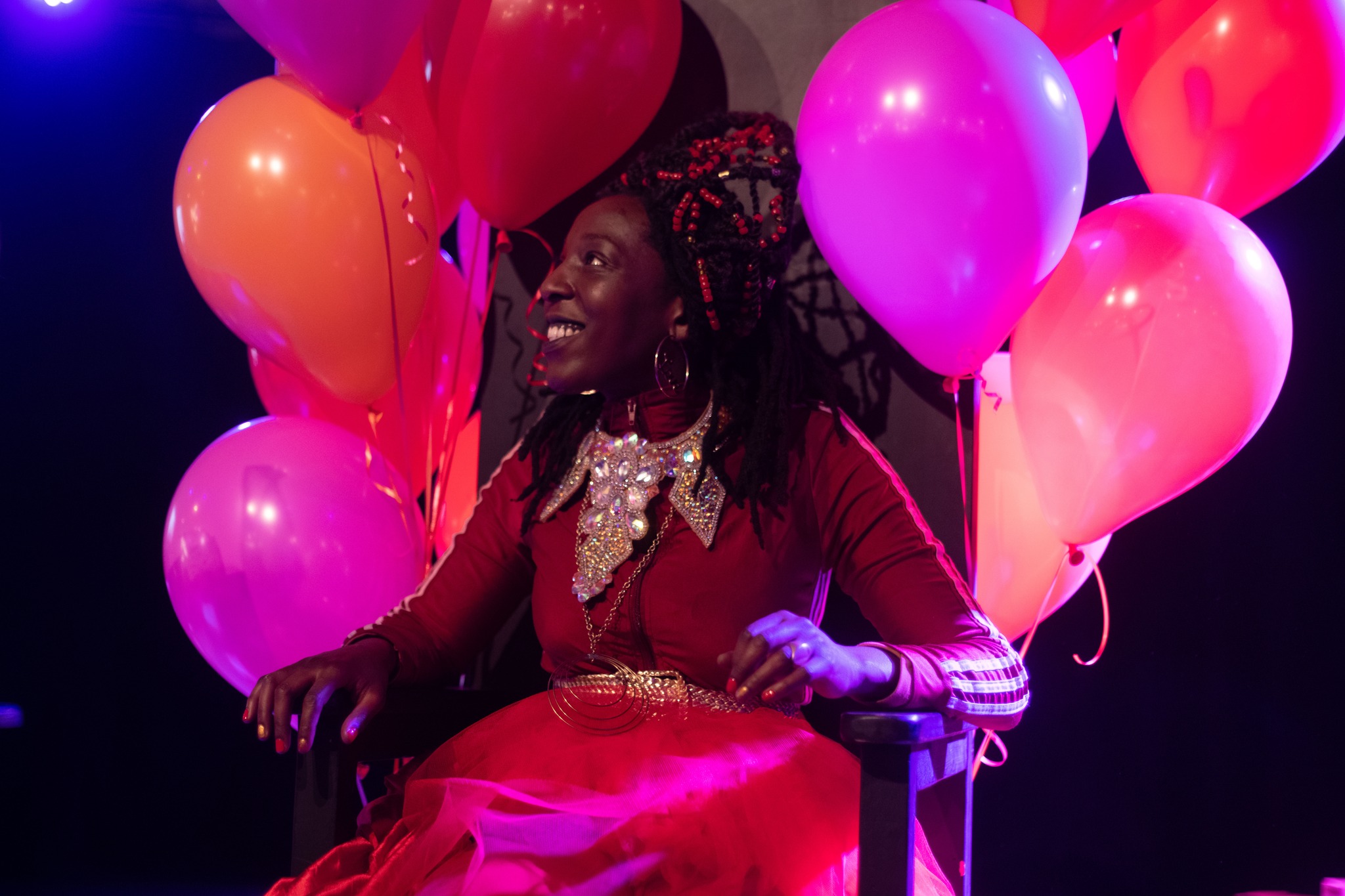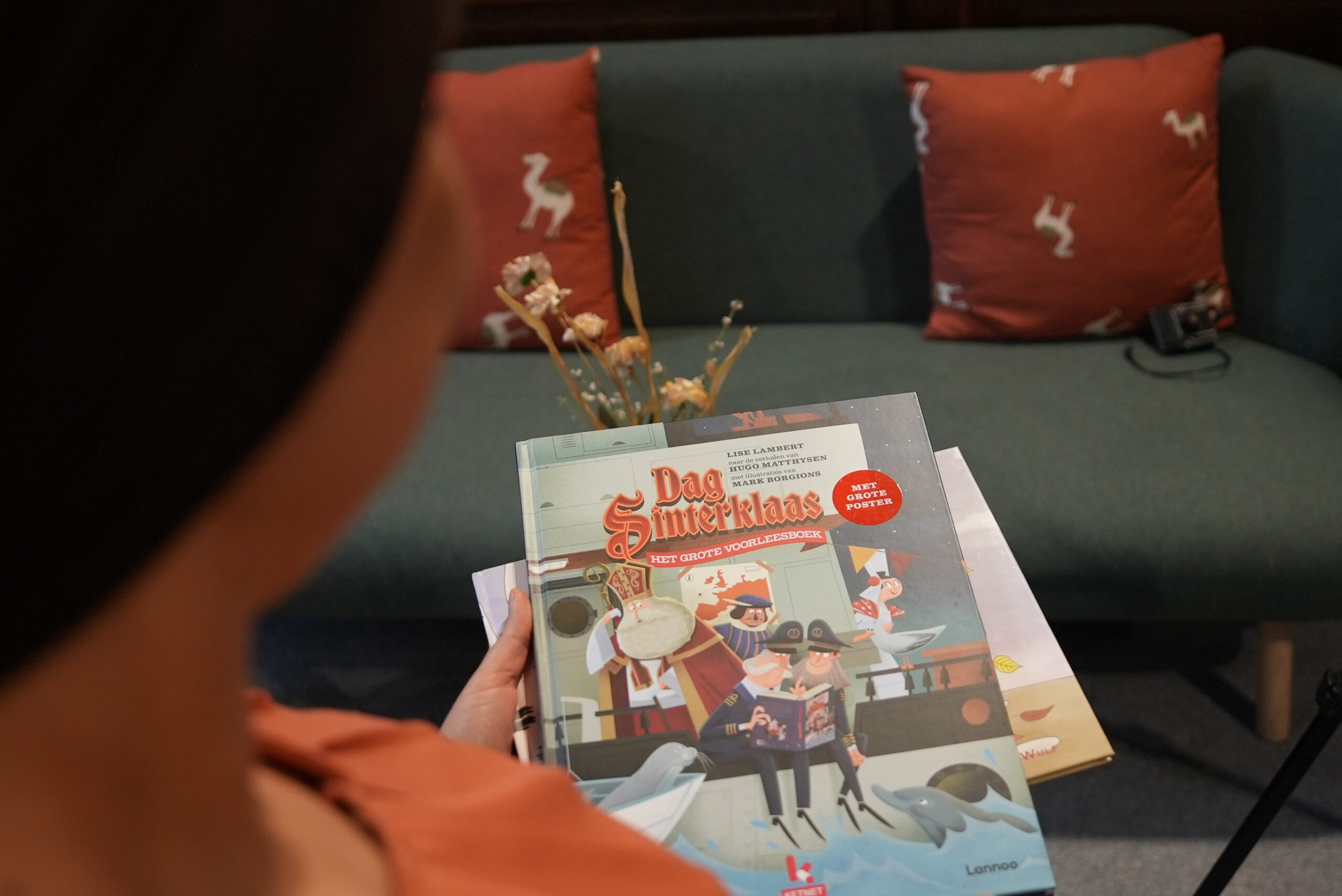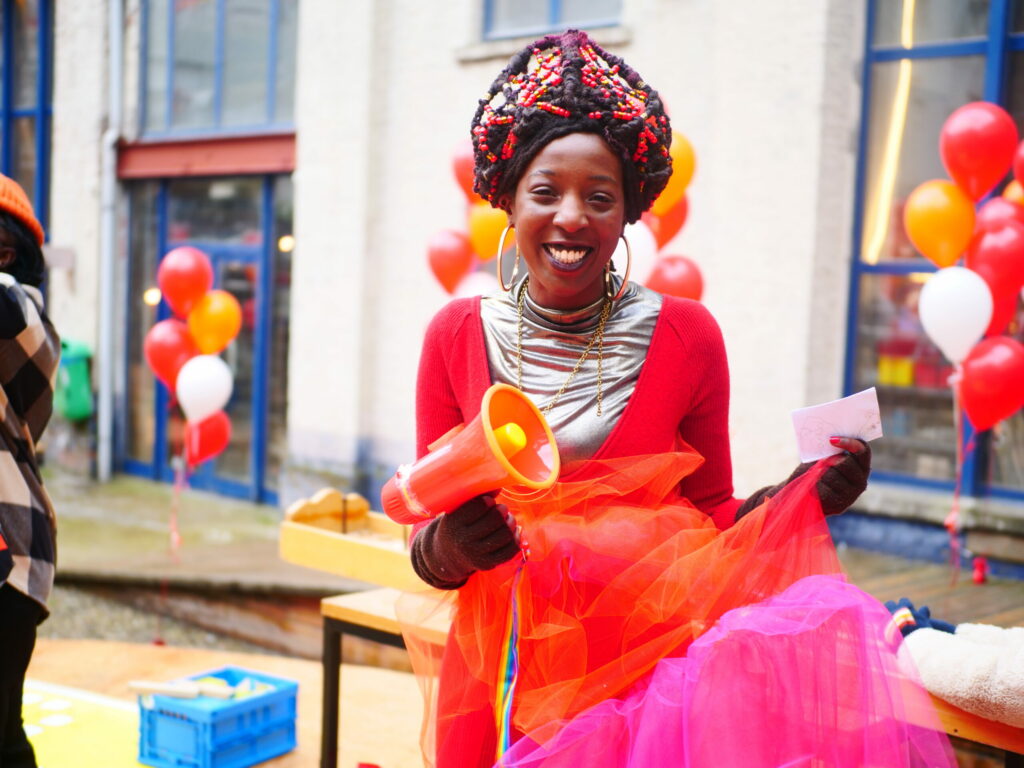Laura Nsengiyumva found herself caught up in a vicious culture war last Christmas, but 'Queen Nikkolah', her inclusive take on the white man Sinterklaas, provides crucial representation for young children facing racism already.
This time last year, Queen Nikkolah was caught in a media blizzard as right-wing politicians denounced the project as "woker than woke" and succeeded in getting an event in Ghent town hall cancelled. The black, female version of Sinterklaas aims to challenge Belgium's stereotypical Christmas story of Sinterklaas and his helper 'Zwarte Piet', but detractors view her as an attempt to eradicate traditional values.
"I have to laugh when I hear the expression 'woker than woke'," Nsengiyumva, an architect and self-described 'artivist' tells The Brussels Times.
Queen Nikkolah came to life in 2017 and gives dozens of workshops around 6 December every year. She has not gone away but is meeting far fewer children than she did last year, given that the political reaction caused so much extra work and exhaustion for the team involved. "We had huge backlash last year and some people are a bit afraid of media attention."
'Some of the stories I hear are so heavy'

Credit: Queen Nikkolah
The workshops act as a safe space where children of all races and genders feel seen and involved in one of the key festive celebrations of the year. There is a smile in Nsengiyumva's voice as she recounts the joy she witnesses among young girls who start play-acting as queens rather than princesses.
But other children open up about the shocking racism they experience in school, which serves as a reminder that these issues go far beyond a lack of representation.
"I'm really trying to find the joy, but yesterday I did a workshop with some boys who have grown up celebrating Queen Nikkolah," Nsengiyumva says. "Right now some of them are turning 12, and they are starting to experience racism on a very basic level. Some of the stories I hear are so heavy."
She describes how classmates will refer to the young boys as "slaves" and "monkeys" and teachers do nothing to call them out. Some of the teachers themselves have been racist towards the children, making apelike gestures and using racial slurs towards their own students.
Sometimes it seems as though black representation in Belgium is improving, but these horrific incidents remind Nsengiyumva that "there is so much more work to do. We have to to work with a sense of urgency, we need to be desperate, and angry, and we need to embrace this spirit of despair."
Being 'anti-woke' is political laziness
The conversation returns to the 'woker than woke' accusation, a label that Nsengiyumva regards with disbelief.
"At first I thought the 'anti-woke' term was just intellectual laziness, but now I think it is laziness on the political level. If politicians don't want to see the problem, then they don't have to work on it. And the non-profit sector ends up doing the work that that they are supposed to do."
The 37-year-old creative was born and raised in Belgium and was never taught about colonialism in school. She expresses concern that teachers who grew up in the same educational system will not be able to see the problem clearly for what it is: a refusal to grapple with Belgium's colonial past and a refusal to accommodate non-white Europeans in the official narrative.

Children's book about Sinterklaas. Credit: Belga / Jonas D'Hollander
Nsengiyumva is clearly drained by the scale of Belgium's racism problem but will carry on delivering Queen Nikkolah workshops nonetheless. Her children's book was published in Dutch with great success last year and will soon be available in French.
When it isn't Christmas, she is busy with a host of other projects, such as a collaboration with the NGO SOS Children's Village. Together they are helping child victims of trauma to construct a monument in Brussels in recognition of their pain. The 'city jewel' will be made up of individuals pearls and is expected to be open to the public early next year.

